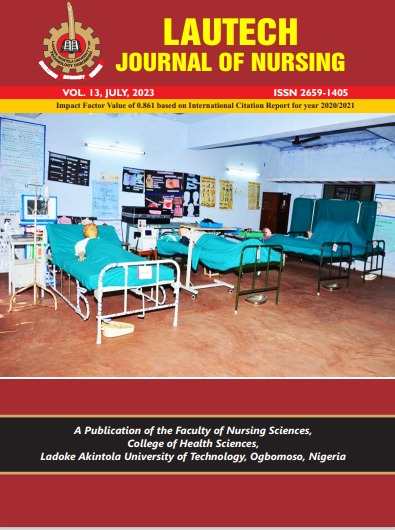covid-19 is a global issue and a major threat to public health. The global impact of this disease cannot be overemphasized. Control of covid-19 can only be achieved if the preventive measures (hand hygiene, social distancing, use of facemasks and vaccination) are accepted and accurately practiced among the populace. The study was conducted to assess the acceptance and practice of covid-19 preventive measures among residents of Laniba community in Ibadan, Nigeria. The study was a cross-sectional descriptive study and sample size was determined using sample size formula for small populations. Random sampling technique was employed to select participants and a semi structured questionnaire was used elicit responses from 406 members of the community. Data was analysed using descriptive statistics and chi-square. The result of this study observed that respondents’ attitudes towards the prevention of covid-19 is highly positive (79%), the level of acceptance of preventive measures of covid-19 is high (91%) and the level of practice of covid-19 preventive measures among Laniba residents is very high. (87.1%). The factors influencing acceptance and practice of covid-19 preventive measures in this study are Soap and water is readily available, The hand washing procedure is not hectic, I feel it is not necessary, Sanitizers are expensive, Sanitizers are not readily available in the community shops, I do not always remember to wash my hands as I should, I do not remember because I am used to socializing with others, I have to worship with others in my church/mosque, Face masks are expensive, I cannot breathe properly when I use face masks, I sometimes forget to use them, The government should provide free face masks for me, I don’t want to be taken away from my family members, It is just a normal disease, I cannot be infected with minor exposure, My business will suffer if I stay at home for that long, God will protect me, The vaccine is not freely available, Vaccine is only available to Govt officials, It is people that want to travel abroad that take covid. The hypothesis tested revealed that there is no significant association between attitude and practice of covid-19 prevention as the calculated x (1.48) yielded a p-value of
0.223 which is greater than 0.05. In conclusion. The findings suggested that the participants in the study have positive attitude and high level of acceptance of Covid19 preventive measures. Some practices of Covid-19 preventive measures (isolation, use of sanitizers and vaccine) need to be improved on.
- OLADEJO | ADEDAMOLA | D | dorcasadedamola@gmail.com | 08165712494, SALMANU | RUTH | A. | @ | +234, OLUWAFISAYOMI | OLUWATOSIN | G | @ | +234, OLAYIDE | OGUNSIJI | O | @ | +234, OYENIHUN | OLUWATOSIN | A. | @ | +234
- Covid-19; Attitude; Acceptance; Practice; Preventive measures.
- ADEDAMOLA D OLADEJO RUTH A SALMANU OLUWAFISAYOMI, G OLUWATOSIN OLAYIDE O OGUNSIJI & OYENIHUN A OLUWATOSIN


